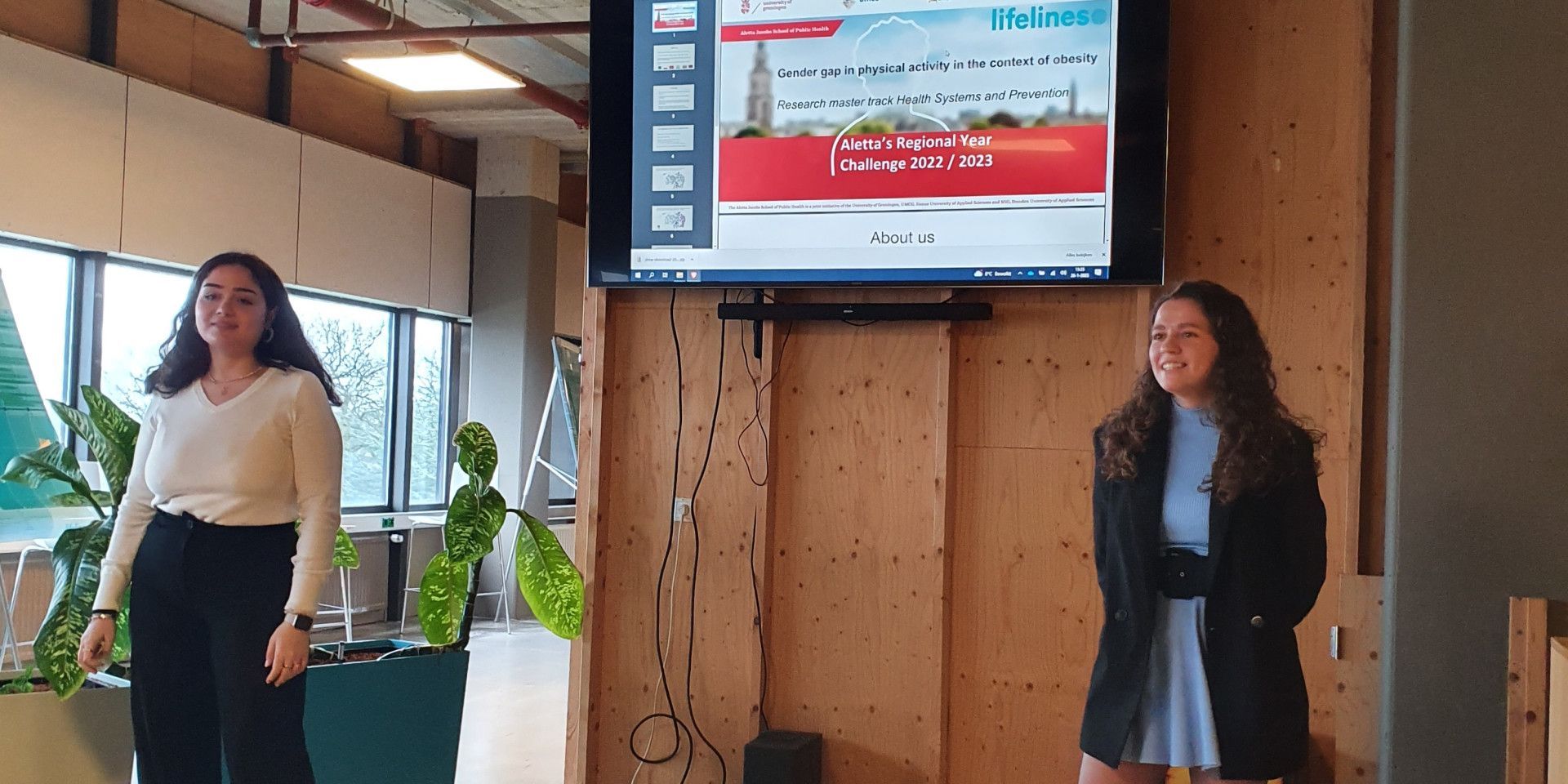
How can we improve an healthy and active lifestyle?
In 2022 the second edition of #ARYC2022 started from the UMCG. During the kick-off, former Aletta Jacobs School of Public Health and new Lifelines Scientific Director Prof. Dr. Jochen Mireau made a plea for making use of data to create social impact, with emphasis on the way in which to present the data to policy makers.
Johan de Jong, lecturer of the Hanzehogeschool, promoted the use of data collection by citizens by, for example, the use of the ‘Our Voice app’ in order to create a healthy context for healthy and active living. The meeting ended with drinks where MBO, HBO and WO students, educational coordinators and other interested parties could network and take a sneak peak of the Lifelines data.

Students of the Noorderpoort Web- and App design worked on two challenges coached by Tom Steffens, owner of FitGaaf! One student group worked on: ‘How to visualize the Lifelines dataset in an interactive way to create awareness/educate children (4 - 12 year) on an active and healthy lifestyle within their own living environment (the Northern part of the Netherlands?’, and the other group created a website to not only inform others about the ARYC initiative, but also help all participants in creating social impact by making good use of the available data in several ways.
After the program, students indicated that they were impressed with what they’ve learned. Some even noted that they’ve gained enough confidence in the skills of data science that they wanted to continue in this field, and chose their Master’s on this subject. This has been a great result for the program, as one of its goals is to help students understand what they can expect from real world data and how to analyse this for actual challenges.

Results from five project groups:
- Quantitative study, titled: “The gender gap in physical activity in the context of obesity”(Rijksuniversiteit Groningen, Health Systems and Prevention)
- Open world game development which is being influenced by Lifelines data (Noorderpoort, Game development)
- Data insights for young children in collaboration with FitGaaf (Noorderpoort, Game development)
- Quantitative meta-study, titled: “From stupid data to intelligent solutions” (Hanzehogeschool Groningen, Honours college)
- Dashboard / application development for research (Hanzehogeschool Groningen, Honours college)

